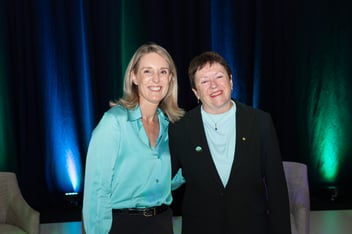Regional councils need a hand up, not a handout to ensure water security
Following the devastating 2019-20 bushfire season, one leading water professional is calling on the New South Wales (NSW) water sector to help build resilience among regional councils.
Delivering a keynote address at the NSW Heads of Water Forum recently, Australian Water Association (AWA) President Carmel Krogh OAM stressed the importance of ensuring regional councils are adequately prepared to meet their obligations regarding water provision and wastewater management.
“The drought and the recent fires set up the perfect storm in our beautiful state,” Krogh said.
“It’s been a real wakeup call to a number of local utilities.”
Krogh pointed to a survey AWA ran with water utilities, which found clear differences between the capacity of smaller regional councils and larger utilities to deal with bushfires and maintain supply.
“It became very clear [there is] a lack of resources available to utilities for understanding the risks and approaches for impacts and water quality issues following bushfires,” she said.
While there has been a lot of discourse surrounding regional council water management over the past decade, Krogh said there is still a gap in terms of meeting obligations during stressful events.
https://www.youtube.com/watch?v=71bokP7Wm3c&feature=youtu.be
“This highlights the need for more guidance and training to develop resilience as we move forward to the next 10 years,” she said.
“Particularly in regional NSW, there have been lots of reviews, lots of promises of reform and a lot of reports.”
With council restructuring leaving many regional water suppliers under skilled, Krogh said partnerships with organisations that can build resilience may help regional councils maintain their provision obligations moving forward.
“Local governments and councils around the state are a very broad church,” she said.
“The breadth and depth of the issues that local council employees have to deal with is all consuming.
“The question and the challenge I have for us all is: How do we change this? The models that we have need changing. We have to recognise that areas of low population density may need a hand up, not a handout.”

